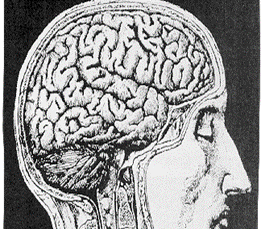
Our brains are the common denominator of all our experience and expression in the outer world.
For most of us, the brain is on automatic,that is, we are not aware of its operations and let its natural predispositions express.
The State of ?Nonsense?
A ?something? does not fit into our naturally constructed patterns of reality. It is person's response to experiencing the boundaries their understanding and knowledge, that is, outside a point-of-view.
Nonsense is only that which, viewed from our present POV, is unintelligible, that is, "I cannot process this information within my current understanding."
Adequatio (adequateness) states that the understanding of the knower must be adequate to the thing to be known. Adequatio is a term this writer uses to describe levels of understanding.
Closely related is the concept of "grades of significance." The same phenomenon may old entirely different grades of meaning and significance to different observers with different degrees of adequatio.
Two philosophical principles are also relevant. They are embedded throughout the work of writers.
The first is "nonsense"and the second is adequatio.


*Paths Beyond Ego
All levels of significance up to the highest are equally factual, equally logical, equally objective.
The observer who is not adequate to the higher levels of significance will not know that they are being missed, or insist they do not exist.
? The issue of understanding has more to do with the incapacity to understand, rather than the inadequacy of explanations.
? There is no point in arguing about the constructed realities between levels.
? You can read a more detailed treatment of Adequatio at level 2.
